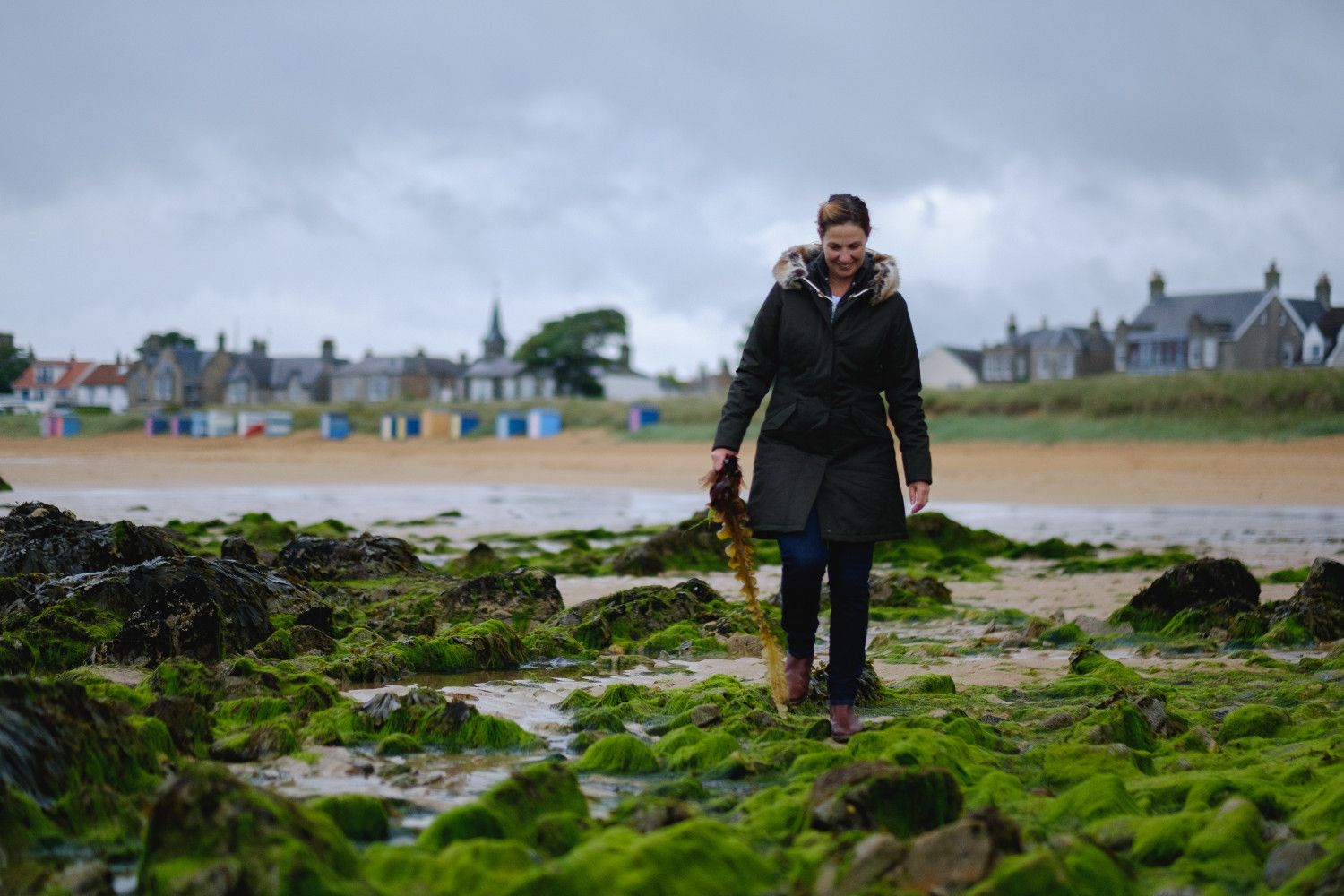There’s a lot more to seaweed than you think. Today’s seaweed farmers and innovators are part of a £12 billion a year global market.
Sustainable and green, seaweed (and seaweed-derived) products have multiple uses. They can be found in the production of food, cosmetics, fertilisers, pharmaceuticals, animal feed, biodegradable packaging, and biofuels.
Seaweed is also projected to be a key crop in the global ‘protein shift’ away from meat. Some seaweeds contain about 30% protein, close to the levels found in meat and soya beans.
Seaweed farming has a low-carbon footprint, uses no fresh water, and requires minimal land-based infrastructure. Add in seaweeds’ remarkable ability to absorb and sequester carbon from the seas, and it’s no wonder it’s nicknamed a ‘wonder crop’.

Sowing the seeds
The seaweed industry is already growing at pace around Scotland’s coast. The Scottish Association for Marine Science (SAMS), in Oban, launched Scotland’s first Seaweed Academy in 2022. This facility will use Scotland’s seaweed research to offer advice and support to seaweed start-ups.
SAMS already works internationally on seaweed research and is well placed to deliver the most up-to-date advice for start-ups and existing farmers who wish to develop their businesses.

Building a sustainable business
From sugar kelp to peppery tasting dulse, the potential of seaweed-derived products is almost limitless. Low in calories and high in minerals, seaweed is a superfood. It can also provide the building blocks for new medicines, chemicals, and biodegradable bioplastics and packaging.
Across Scotland, ambitious seaweed farmers are already beginning to tap into SAMS’ network. They are accessing expert advice, new markets, and new products, which help them provide year-round employment in their local communities.
Historically, seaweed was gathered from the wild, by hand. Today, rope-grown seaweed is becoming the norm. This avoids the overexploitation of wild seaweed beds and protects the natural ocean ecosystem.

Making a difference
New seaweed farmers are making a difference and building sustainable businesses. Edinburgh-based Mara Seaweed has been at the forefront of Scotland’s seaweed revolution.
Established in Edinburgh 10 years ago, co-founders Fiona Houston and Xa Milne turned their shared passion for seashore foraging into an international business.
The company uses Scottish grown seaweed to produce its range of dried flakes and seasonings. Some of these are already used by top chefs.
With little knowledge about seaweed cookery amongst UK consumers, Mara’s journey hasn’t always been easy.
With support and encouragement from Scotland Food and Drink, Scottish Enterprise, the Business Gateway scheme, and a host of top TV chefs, Mara has grown both its business, and its reputation, amongst food lovers. It’s been a 10-year process of educating people, and their palates, about the health, taste, and wellbeing benefits of eating seaweed.

Today, Mara’s hard work and influence is beginning to pay off, with Scottish beer, biscuit, and even premium spirit makers all using seaweed in their products.
Co-founder Fiona says: “Seaweed absorbs around 50 percent more carbon than the tropical rainforest in its growth cycle. As a company, we want to ensure that our manufacturing process is net zero so that we can fulfil our goal of offering the market products that are truly good for planet health and human health.”
Using the ‘think global, act local’ mantra, over the next five years Mara aims to grow its workforce from 11 to 40. They aim to see their products appear in both public sector catering and home kitchens around the world. The company is now looking to open its own seaweed farm. They also hope to build a £1.3 million processing plant, to take its products from sea to table.

Nurture, and nature
Elsewhere, Arnish, on Stornoway, is home to Hebridean Seaweed. This fast-growing business's farming plant trebled in size in 2020 alone. Two tonnes of powdered seaweed from Arnish, as a natural flavour enhancer, goes into 40 million packets of a well-known pasta sauce every year.
Meanwhile, in Wick, in the far Northeast of Scotland you can find The Scottish Seaweed Company. Under its ‘Shore’ brand, it has already brought a range of tasty seaweed snacks, pestos and tapenades to UK markets.
In Oban, Oceanium is already developing a range of bioactive nutraceuticals and cosmeceuticals. They even use seaweed to develop all-natural, sustainable packaging to replace carbon-intensive packaging materials.
Looking to the future
The challenge is to ensure that seaweed farming in Scotland develops in a way that is sustainable, environmentally responsible, and contributes to a diverse and resilient coastal economy.
These are the challenges that Scotland’s new generation of seaweed farmers look forward to meeting head-on.
So, next time you go out to dine, don’t ask someone to ‘pass the salt’, ask them to ‘pass the seaweed’.